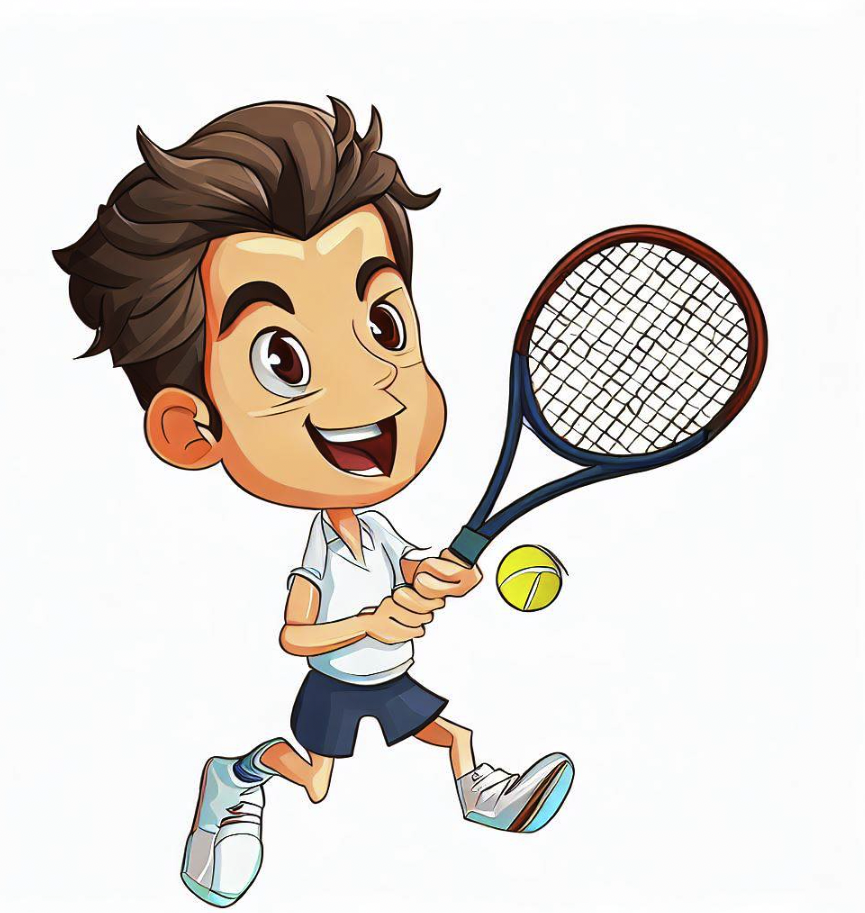Professional tennis is a world that has been graced by many legends, and among them, the name Roger Federer holds a distinct place.
Federer, a Swiss professional tennis player, has broken records and reshaped the sport with his performance, skill, and class.
In this article, we will delve into what made Roger Federer such an exemplary figure in tennis.
Unmatched Skill Set
Perhaps the most obvious factor behind Federer’s success is his incomparable skill set.
Tennis is a game of physical skill and mental toughness, and Federer has demonstrated an extraordinary level of both.
Forehand Mastery
Often referred to as the best forehand in tennis history, Federer’s forehand stroke is a force to be reckoned with.
It’s an explosive shot that combines power, accuracy, and spin, allowing him to place the ball anywhere on the court.
Below we have a video showing a training session with Federer with a tennis pro commentating what made Federer so special at tennis:
My Training with Roger Federer
For a pro’s feedback for what Nadal and Djokovic so special, please see articles below:
Serve and Volley Game
Federer’s serve and volley game is another crucial aspect of his skill set.
His serve is accurate and strong, setting up a potent first strike.
His volley, on the other hand, shows his excellent net play, anticipation, and touch.
Both have been significant in his career, helping him win crucial points during games.

Tactical Brilliance
Tennis is often compared to a game of chess due to the immense importance of strategy.
Roger Federer excels in this arena, showcasing tactical brilliance that is unmatched.
Versatility and Adaptability
Federer’s game is incredibly versatile, which allows him to adapt to any opponent’s style.
Whether he’s up against a powerful baseline player or a skilled serve-and-volley player, Federer can switch his game plan to counter them effectively.
This adaptability has been key to his longevity in the sport.
Court Sense
Federer’s outstanding court sense, i.e., his spatial awareness and understanding of how to manipulate the court space, is another significant aspect of his tactical genius.
He can anticipate his opponent’s moves and adjust his own positioning to maintain an advantage.
This ability to ‘read the game’ sets him apart from many of his contemporaries.

Psychological Fortitude
In tennis, the difference between victory and defeat often comes down to a few critical points.
Federer’s mental toughness in these high-pressure situations is truly remarkable.
Cool Under Pressure
Federer’s ability to stay cool under pressure is one of his greatest attributes.
He never appears flustered, even in the most intense moments of a match.
This calmness allows him to perform at his best when it matters most, clinching vital points and swinging the momentum in his favor.
Confidence and Belief
Federer’s unwavering self-belief is a cornerstone of his success.
Despite facing challenges and setbacks, Federer always trusts his ability to win.
This confidence radiates on the court and often puts immense pressure on his opponents.

Consistency and Longevity
Lastly, Federer’s consistency and longevity in the sport have solidified his status as one of the greatest tennis players of all time.
He has maintained an exceptionally high level of performance over a long period, amassing a multitude of titles and accolades.
Physical Conditioning
Federer’s physical conditioning is paramount to his career longevity.
He has taken great care of his body, allowing him to stay competitive at the highest level well into his 30s, an age at which many professional tennis players begin to decline.
Passion and Love for the Game
Federer’s passion and love for tennis are evident in every match he plays.
This love for the sport has kept him motivated and eager to continue improving, even after achieving so much in his career.
It’s this passion that has helped him maintain a level of consistency rarely seen in the sport.
Conclusion
Roger Federer’s success in tennis can be attributed to his unique skill set, tactical brilliance, psychological fortitude, and his consistency and longevity in the sport.
His legacy in the game will undoubtedly continue to inspire future generations of tennis players.
FAQs – What Made Roger Federer So Good at Tennis?
What are the key strengths of Roger Federer’s game that make him such an exceptional player?
Roger Federer’s game is built on a combination of technical precision, strategic versatility, physical durability, and mental resilience.
He has a nearly flawless technique that allows him to execute a wide array of shots with great precision and power.
His versatility allows him to excel on all types of surfaces and against all styles of play.
His physical conditioning enables him to endure long, grueling matches and recover quickly.
And his mental toughness and competitive drive allow him to perform at his best under pressure.
What kind of training regimen did Federer follow to achieve his level of proficiency?
Roger Federer followed a rigorous and holistic training regimen that includes technical tennis drills, strength and conditioning work, strategic study, and mental conditioning.
His practice sessions, as viewed in the video above, are meticulously structured to maximize skill development and physical conditioning.
Off-court, Federer has consistently worked with fitness trainers and physiotherapists to maintain his physical fitness and prevent injuries.
How important was Federer’s serve to his success in tennis?
Federer’s serve was crucial to his success.
His serve is known for its accuracy, variety, and consistency, rather than raw power.
He was able to use his serve to set up winning points, put opponents on the back foot, and get out of difficult situations.
His ability to serve well under pressure was particularly noteworthy.
How did Federer’s style of play evolve over his career?
Federer’s style of play evolved significantly over his career.
Initially, he was known for his aggressive baseline play, but over time, he incorporated a more varied and strategic game, often including serve-and-volley tactics.
As his career progressed, he also improved his backhand, which became a major weapon in his later years.
These evolutions were driven by changes in technology, the playing style of his rivals, and his own physical condition.
How important was mental toughness to Federer’s success?
Mental toughness was a key component of Federer’s success.
He was known for his ability to stay composed under pressure, maintain focus during long and difficult matches, and bounce back from setbacks.
His mental resilience often gave him an edge in tight matches and was a major factor in his longevity in the sport.
How did Federer’s performance vary across different types of courts?
Federer was successful on all types of courts, but he was particularly dominant on grass and hard courts, where his aggressive and precise game was most effective.
His versatility allowed him to also excel on clay, though it’s the surface where he had his biggest struggles, largely due to the dominance of Rafael Nadal, a clay court specialist.
How did Federer maintain such a high level of play into his late 30s?
Federer maintained a high level of play into his late 30s through a combination of diligent physical maintenance, strategic scheduling, and continuous evolution of his game.
He carefully managed his schedule to ensure he had adequate rest and recovery time, and he consistently worked on improving various aspects of his game to stay competitive with younger players.
How did Federer’s rivalry with Nadal and Djokovic influence his career?
Federer’s rivalries with Nadal and Djokovic played significant roles in his career.
They pushed him to continuously improve his game and adapt his strategies.
These rivalries also contributed to some of the most exciting and high-quality matches in tennis history, further solidifying Federer’s legacy as one of the greatest players of all time.


